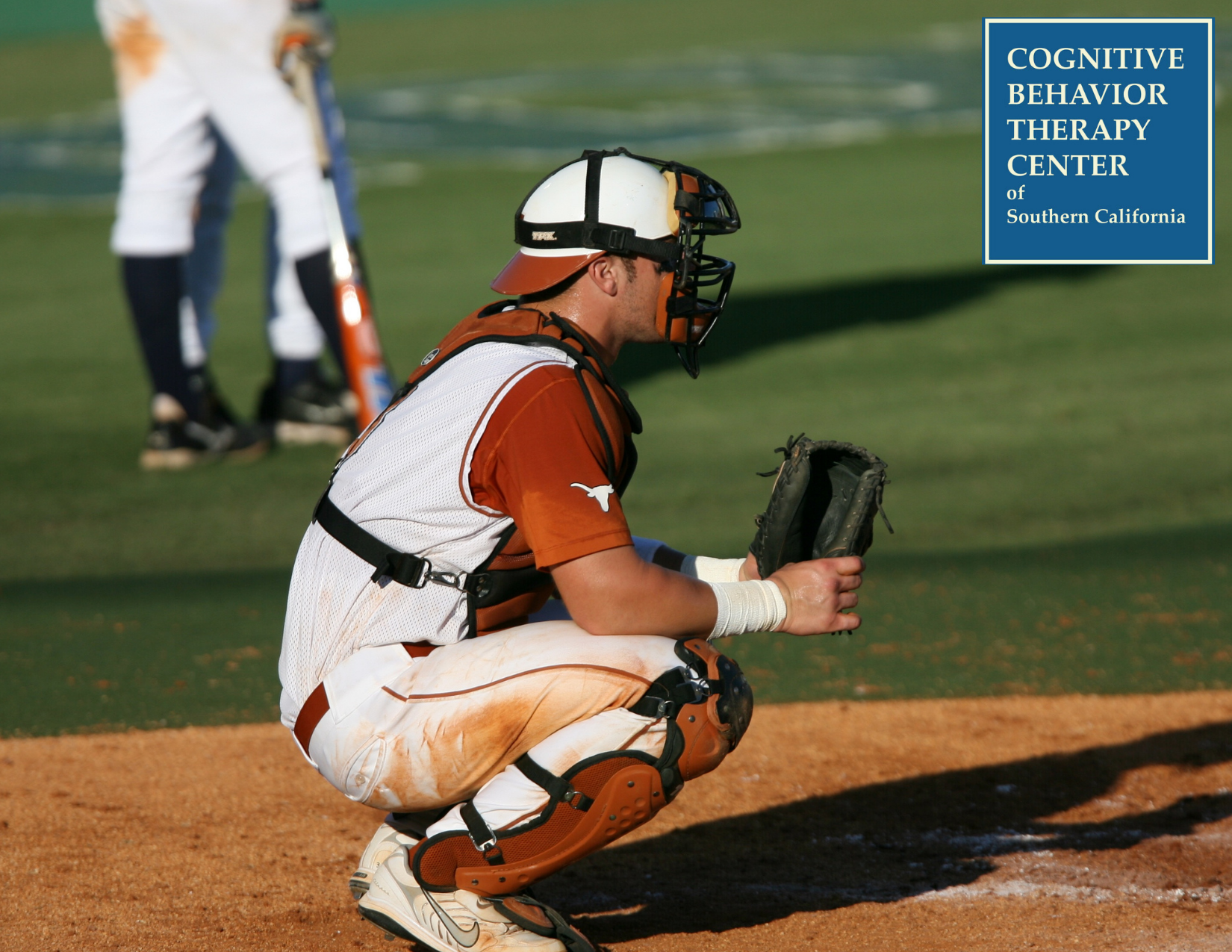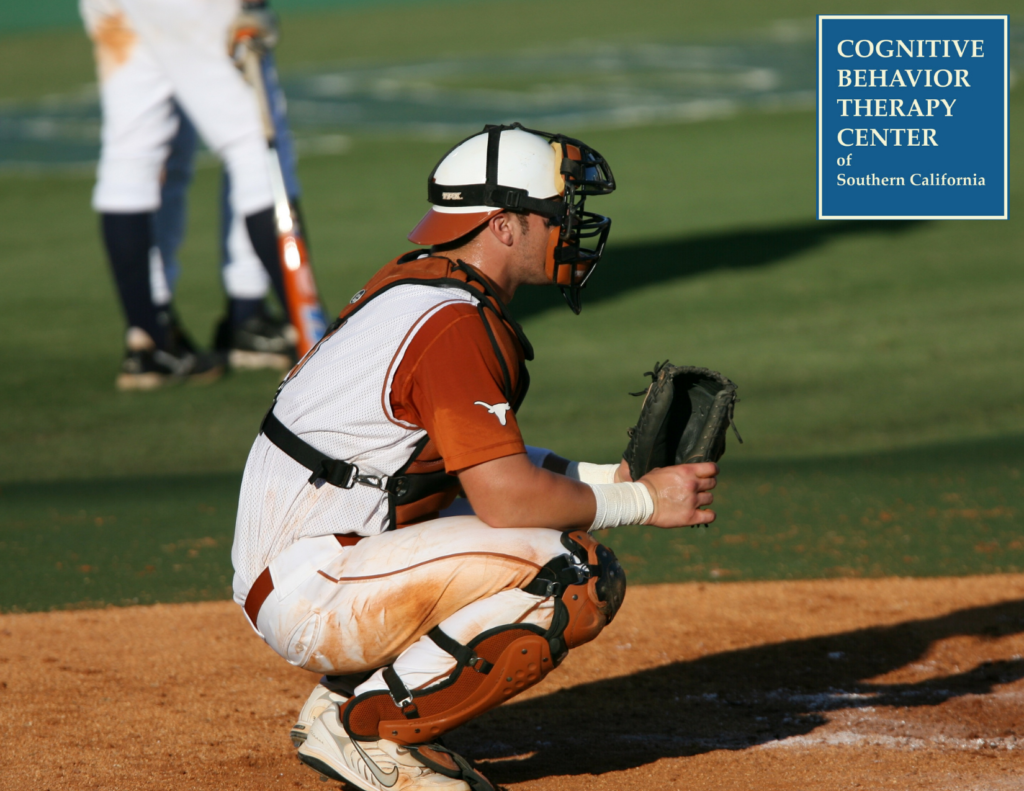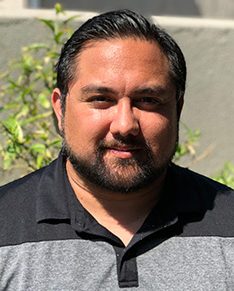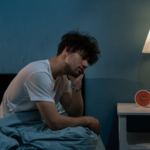Do college athletes suffer from OCD?


Although the stigma surrounding mental health is subsiding, it is still commonly believed that elite athletes must be as mentally healthy as they are physically fit. However, just as it would be ridiculous to assume that an athlete was incapable of breaking a bone or contracting a disease, it would also be misguided to believe an elite athlete could not suffer from mental illness. Obsessive compulsive disorder (OCD) is a mental illness that involves suffering from obsessions, which are unwanted and persistent thoughts, images, or urges. After an individual with OCD experiences an obsession, they feel compelled to engage in a compulsion, which is a repetitive behavior or mental act. For example, a college baseball player suffering from OCD might experience an obsession in which he believes that if he doesn’t shut the door to his dorm room in a way that is just right, he will suffer a grievous injury on the baseball field. As a compulsion, he might open and close his dorm room dozens of times in an attempt to get it just right and reduce his anxiety about suffering a career ending injury. In popular culture, an athlete’s OCD symptoms are often depicted as being mostly silly and harmless such as carrying a good luck charm of tussling the hair of a person deemed as good luck. However, in reality OCD symptoms are often highly distressing and can even be debilitating.
How many college athletes suffer from OCD?
Researcher and psychologist, Lisa Cromer, PhD, and her colleagues published a study in the The American Journal of Psychiatry examining OCD in a sample of NCAA Divison I athletes. Dr. Cromer and her colleagues found that in their sample of 269 athletes from 13 different NCAA sports, 20.1% (54 athletes) screened positive for possible OCD in the first year of the study. In the second year of the study, out of a sample of 270 athletes, 35% (94 athletes) endorsed OCD symptoms, 16.7% (45 athletes) screen positive for possible OCD, and 5.2% (14 athletes) met full criteria for OCD.
What types of OCD symptoms do college athletes experience?
Dr Cromer and colleagues found the following from their sample of 270 athletes in year 2 of the study:
- 37.5% (98 athletes) suffered from hoarding symptoms such as fear of losing information, fear of losing things, and hoarding clutter.
- 30.8% (80 athletes) suffered from symptoms related to symmetry such as compulsively arranging, counting, or repeating.
- 32.8% (84 athletes) suffered from symptoms related to forbidden thoughts such as thoughts of harming others, concerns about diseases, or excessive concerns about morality.
- 11.7% (30 athletes) suffered from symptoms related to contamination such as fear and disgust of contamination.
What can college athletes do about OCD?
Dr. Cromer and her colleagues found that none of the college athletes sampled in the study had received a diagnosis of OCD prior to their involvement in the study. Furthermore, few of the athletes had ever received any type of psychological treatment. This is especially troubling since the prevalence rate of 5.2% among the sample of NCAA Division I athletes is higher than the prevalence rate of 2.3% for the general population.
There is an urgent need for college athletes to receive effective treatment for OCD. Cognitive behavior therapy (CBT) with exposure with response prevention (ERP) is the gold standard treatment for OCD. This treatment involves a trained mental health professional helping someone with OCD learn to approach situations that trigger their obsessions without engaging in compulsions. This is a difficult task, as someone’s anxiety will increase in the short term when they do not engage in compulsions. However, they will soon learn that they can tolerate their anxiety and that the feared outcome involved with the obsession does not come true.
If you are interested in discussing if CBT with ERP would helpful for you then schedule a free phone consultation.

Dr. Jason von Stietz specializes in Cognitive Behavior Therapy and Sport/Performance Psychology in Torrance, CA. He provides online therapy (telehealth) by way of the Torrance office and is available for a free initial phone consultation. Dr. von Stietz works with individuals from Long Beach, the greater Los Angeles area, and the South Bay including Palos Verdes, Redondo Beach, Hermosa Beach, Manhattan Beach, El Segundo and all over California.




